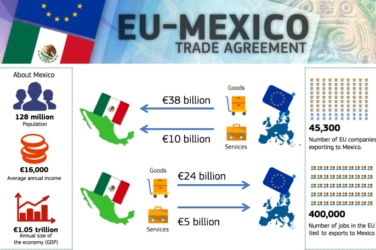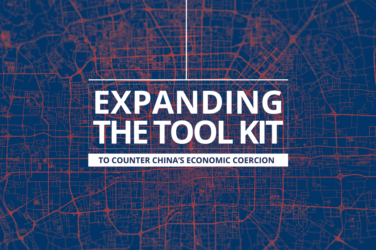When studying international trade, there were occasional moments when I moved away from mathematical formulations or geometric figures. At those (rare) times, I actually had to read prose. And I discovered that there was an American master of narratives about the subject. Charles P Kindleberger produced invaluable stories, based on facts and policies, that are as relevant now as they were when he first related them decades ago. He noted, for instance, that the US, as a continent with practically every type of climate, rich soils, plentiful land, and an abundance of mineral resources, could easily be self-sufficient. In fact, foreign trade as a share of GDP has been very low until recently. President Trump, who may not have any idea of who Professor Kindleberger was, could well have had Kindleberger’s common sense observation in mind when launching (and lurching) into his commercial battles over the past 3 years.
In a reference to European trade history, the MIT Professor told how Switzerland, back in 1906 when it had a highly protected and poor economy, made the remarkable announcement that it would remove all tariffs on milk and dairy products. As Kindleberger wryly remarked, before the French and Italian farmers of that epoch salivated too much, it behoove them to read the fine print. There was a proviso, a condition that had to be met if the imports were to enter Helvetia free of charge. The milk and its derivative products had to come from cows that, during the summer months, grazed at altitudes exceeding 1500 meters, before descending to lower levels in the autumn and winter seasons. In short, no trade without transhumance – a practice at which the Swiss were (and are) masters, and which no neighboring country then used to any degree. Suffice it to say that the Swiss internal market for those key products was scarcely affected by the “zollfrei” declaration.
These and many other examples of trade facts and fancies so splendidly recounted by Kindleberger come to mind when examining what has been happening, and what is being asserted or propounded as policy, in the latter part of this decade. This week, for instance, India stated at the RCEP Summit in Bangkok that it would not go ahead in participation with this major Asian multilateral trade initiative since its concerns about market liberalization had not been met. A glance at the reasons advanced by the Indian government for its decision makes for very familiar reading. The danger that India’s domestic market for relatively simple manufactures could be flooded by cheap imports from China; the consequent damage to firms and employment; the worry that future investment in the Indian economy would be held back by the import threat; the concern that the already large trade deficit with China would quickly become still greater and put pressure on exchange rates, currency reserves etc. At the same time, Japan, another of the giant economies involved in RCEP, noted that non-participation by India would unbalance the whole arrangement. So it was decided that future talks will take place to see whether India’s concerns can be met.
President Trump, meanwhile, went into yet another of his swings in the dispute he began with China (and others) soon after taking office. His latest claims are that maybe a bilateral deal can be reached that will simultaneously reduce the damage caused by his protectionism and allow him to continue to blare out the message of “America First” so important in a re-election campaign. Of course, bilateral deals on shaping market morphology (of which foreign trade is an important dimension) are always tempting for a very strong country with countless companies operating on a global scale. So the US President also did not miss the chance to tell the UK government (an entity suffering from an extreme case of the “trade delusions” malady) that, unless it broke completely, a la Farage, with the EU, it would not obtain much of a trade arrangement with the US.
Elsewhere the trade news has likewise not been promising. The recent announcement of the long awaited arrangements for an African Free Trade Union led to much jubilation. Rightly so, even if the real impediments to far greater commercial intercourse on that continent go way beyond tariffs. But in the last couple of days Nigeria has placed strong restrictions on trade with Benin; there has been no shift in the “big brother” attitude which South Africa adopts to its close neighbors under the guise of Customs Unions; the fractures in the Maghreb continue to confound initiatives in that region; and the endless complaints of many countries about the circulation of products (such as expired pharmaceuticals) which are potentially dangerous are just that – endless and unanswered.
South American countries have long been treated by the US and Europe as being a bit isolated, away from the action (Garcia Marquez was once asked what his great novel “100 Years of Solitude” was really about – and he simply replied “Solitude”). President Trump has forced significant changes to the original NAFTA agreement, to the detriment of its “distant neighbor”( I borrow Alan Riding’s felicitous phrase), Mexico. Such progress as had been made in MERCOSUR is gravely threatened by the constant instability in both Brazil and Mexico, reinforced by the sharply divergent perspectives of their current governments. The EU may have crowed about the conclusions of its recent trade agreement with the MERCOSUR countries, yet the prospects that it will offer much of a boost to those countries are not good. On the Pacific coast, the Andean countries seem more apart than ever. Aside from the cocaine business, there is still precious little trade among them. China seeks to promote business across the continent, using the by now standard mix of major involvement (financing) of infrastructure, along with direct investments in selected sectors (especially natural resources). Japan and Korea continue to reinforce their earlier ventures in manufacturing value added chains across the Pacific.
In Europe the picture conforms ever more closely to the EU self-image as the world’s norm producer. The agreement this week with China for that country to recognize the “appellations d’origine” for key agricultural items, and thereby reduce/eliminate Chinese production and export of items using these geographical indications, is another step in that direction. The intense focus on standards has been the defining characteristic of EU trade policy for the past several decades. It is of immense importance to a couple of countries, particularly Italy, which sees itself as the producer of all that is excellent in the food domain. Indeed, right now the Italians seem to think that this is pretty much the only way their EU membership is of value. The EU way has nearly always been to try and satisfy the national aspirations of one or two Member States (especially the founders), while minimizing negative impacts on the rest. There are no signs of that approach being modified. Exceptionally complex regulation as a device for controlled liberalization has been the guiding principle for EU trade arrangements.
In this setting the WTO itself is, inevitably, in the line of fire for some while being the object of a rearguard action by others. The US is threatening to withdraw from the organization’s Dispute Resolution Mechanism (by refusing to nominate Panel Members as of next January). This effectively means that rule based trade will be substantially weakened. It would be a further blow to multilateralism, and a further deterioration in the position of weaker countries. When, a quarter century ago, WTO was set up, there were strong debates about whether a global entity was really the most suitable way to move forward. Subsequent developments, in the shape of the long term blockage of the Doha Round, the drive for bilateralism promoted by the US for at least the past two decades (in other words, way before the current US President came to office – witness the then labelled “New Generation” trade agreements with Singapore, Chile and others), the formation of sub regional groupings on all continents, and the protracted and clumsy EPA deals pushed so hard by the EU with the so called ACP countries, have demonstrated that the single channel, single speed method was indeed not the most useful. Increasingly, countries have operated outside that framework.
Above and beyond all these matters, however, is the fact that trade in goods, as it used to be understood, has since way back not been the epicenter of action. For purposes of the so-called “balance of payments”, financial movements have long since dwarfed transactions connected with tangible products. The growth of international value chains, for goods and services, and the attendant necessity of calculating “national” trade in terms of contributions to the final item sold, has drastically altered perceptions of what trade means. And now massive international flows of information, driven by technological change, mean that cross border transactions of ”intangibles” are central to economic evolution. Last but not least, the relentless rise of illicit trade of every type cannot be ignored. Drugs have long dominated the headlines. Yet human trafficking, waste disposal, sales of human organs, along with the old stalwarts of alcohol and cigarettes, form part of these flows.
We are thus in a phase where trade institutions and practices are under siege everywhere and through countless devices. Defense of real or perceived national interests continues to be raised as a flag by all kinds of groups. The range of arguments so ably described decades ago by Charles Kindleberger continues to be paraded across the stage. For some, trade is seen as a panacea, for others it is a threat. In the next decade, will there be more trading in – or further shouts to trade out?
Peter O’Brien, Brussels, 7 November 2019





